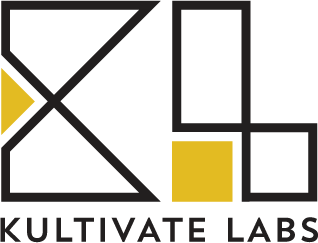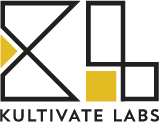Fueling the Future of Culture
Cultural survival is on the line. Here’s how sponsorship can help.
UNDSCVRD X SPAM 2023, Photo: Neil Yuzon
For years, Filipino American organizations like ours have carried the weight of cultural preservation on our backs—with little funding, lots of unpaid labor, and an enduring belief in the power of community.
We’ve made it work through:
Volunteerism that asks families to give more than they should
Cultural events pulled off with grit and duct tape
Occasional grants that rarely allow for long-term planning or stability
And yet—we’ve created magic. Events like UNDISCOVERED SF, programs like Balay Kreative, and spaces like Kapwa Gardens have become vital touchstones for the Filipino community and cultural life in San Francisco.
But here’s the truth: magic isn’t a funding strategy.
The Reality: Public Funding Is Dying
This year, Kultivate Labs—like many BIPOC-led organizations—has been hit hard by deep cuts from city, state, and federal government agencies. Grants we once relied on have shrunk or disappeared altogether. We’ve had to freeze pay, scale back programs, and make painful staffing decisions.
We’ve already had to press pause on Balay Kreative programming, a core part of our work that supports emerging Filipinx and BIPOC artists through residencies, grants, and cultural production. And the hits keep coming.
Most recently, we learned that Governor Newsom is proposing to revert $11.5 million previously allocated to the Performing Arts Equitable Payroll Fund (PAEPF) back to the General Fund—cancelling funding for the program altogether. If this proposal moves forward, Kultivate Labs will lose approximately $107,000.That’s not just a budget cut—it’s the loss of real opportunities for working artists to earn fair wages and build sustainable creative careers.
And yet the demand for our work has never been more important. We’re still expected to activate neighborhoods, support artists and small businesses, and bring vibrancy to communities that are too often left behind in San Francisco’s economic planning.
[button: Sign The Petition To Bush Back On Gevernewsom’s Proposal]
Not Just a Logo: Sponsorship That Builds Futures
In this climate, corporate sponsorship is no longer optional—it’s critical.
But we don’t want old models of sponsorship. We’re not looking for transactional visibility or logo placements without substance. We’re calling for something deeper:
A new relationship with capital—one that supports community power, cultural equity, and long-term sustainability.
We learned this the hard way.
Last October, we accepted a sponsorship from McDonald’s for our UNDISCOVERED event. At the time, we saw it as a way to support vendors, pay our artists more fairly, and make the event financially viable amid major funding cuts. But we didn’t fully weigh the broader political and ethical context.
McDonald’s is on the boycott list of the BDS movement for its perceived alignment with Israeli government policies. For many in our community—especially those standing in solidarity with Palestine—our decision felt like a betrayal of values.
We heard you. We reflected. And we’re actively learning from that experience.
It reminded us that sponsorship is never just financial—it’s emotional, political, and cultural. It shapes how communities feel seen, respected, or sidelined. It affirmed that integrity in partnership matters as much as the support itself.
To that end, we’re currently developing a set of sponsorship guidelines to help us navigate these decisions with greater transparency, clarity, and accountability. We’ll share those publicly as we continue evolving our practices.
We also know that true accountability is more than internal policy—it’s relational. In that spirit, we will soon host a community healing session to hold space for dialogue, learning, and reconnection with those who were impacted by the decision. Details will be announced in the coming weeks.
We’re not perfect—but we’re committed to doing better.
A Different Kind of ROI
Kultivate Labs isn’t just throwing parties. We’re building cultural institutions.
We’ve driven over $1,000,000 in revenue to Filipino-owned businesses through UNDISCOVERED SF.
We serve over 300 artists and entrepreneurs annually through our development programs.
Our events bring in tens of thousands of people, activating foot traffic in the heart of San Francisco.
This is the kind of ROI that builds social trust, deepens brand alignment, and makes your company part of the future—not the problem.
It’s Time to Shift the Model
For decades, BIPOC communities have kept culture alive with love, not resources. That era is over.
We’re now in a moment where public funding is shrinking and grassroots labor alone can’t sustain the scale of work our communities need. We have to get creative with how we resource this movement—and sometimes that includes corporate sponsorship.
We know this isn’t easy. Many of us come from activist spaces that have seen how corporate power can exploit, co-opt, or dilute community movements. We share those concerns. And we’re doing the hard work of navigating these complexities with care, transparency, and community accountability.
That’s why we’re building internal guidelines, holding space for community healing, and being more intentional with who we partner with and how.
To our allies in the movement: we ask for your continued engagement—not silence or approval, but dialogue and trust as we walk this tightrope. We’re not chasing sponsorship for prestige. We’re doing it because we have no choice if we want to survive—and ultimately, thrive.
And if you’d rather we not take corporate dollars, we understand—and we invite you to support us in another way.
Our grassroots donation portal is always open. Individual contributions, at any level, help give us the freedom to say no to sponsorships that don’t align—and say yes to more community-led work.
And to companies: if you’ve benefited from San Francisco’s growth, this is your invitation to invest back. Not for charity. Not for optics. But for a future where culture, equity, and commerce work together—with community at the center.
If you believe in the future of culture, invest in it now.


